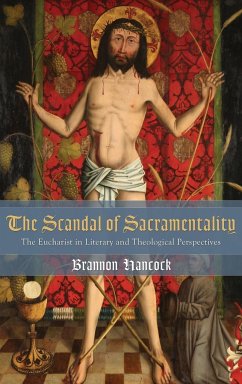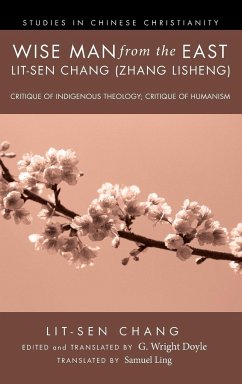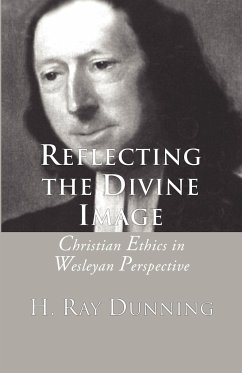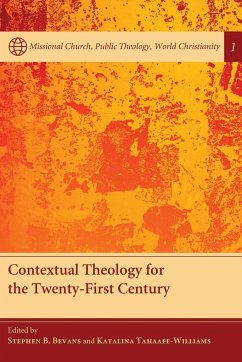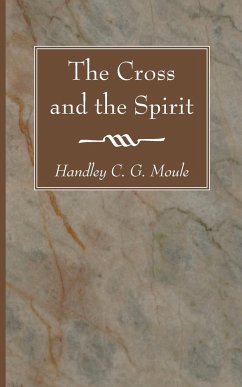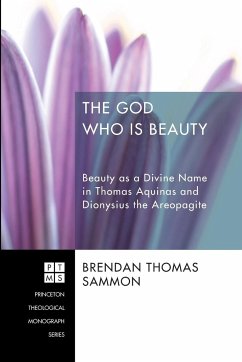
The God Who Is Beauty
Versandkostenfrei!
Versandfertig in 1-2 Wochen
39,99 €
inkl. MwSt.
Weitere Ausgaben:

PAYBACK Punkte
20 °P sammeln!
When in the sixth century Dionysius the Areopagite declared beauty to be a name for God, he gave birth to something that had long been gestating in the womb of philosophical and theological thought. In doing so, Dionysius makes one of his most pivotal contributions to Christian theological discourse. It is a contribution that is enthusiastically received by the schoolmen of the Middle Ages, and it comes to permeate the thought of scholasticism in a multitude of ways. But perhaps nowhere is the Dionysian influence more pronounced than in the thought of Thomas Aquinas. This book examines both th...
When in the sixth century Dionysius the Areopagite declared beauty to be a name for God, he gave birth to something that had long been gestating in the womb of philosophical and theological thought. In doing so, Dionysius makes one of his most pivotal contributions to Christian theological discourse. It is a contribution that is enthusiastically received by the schoolmen of the Middle Ages, and it comes to permeate the thought of scholasticism in a multitude of ways. But perhaps nowhere is the Dionysian influence more pronounced than in the thought of Thomas Aquinas. This book examines both the historical development of beauty's appropriation as a name for God in Dionysius and Thomas, and the various contours of what it means. The argument that emerges from this study is that given the impact that the divine name theological tradition has within the development of Christian theological discourse, beauty as a divine name indicates the way in which beauty is most fundamentally conceived in the Christian theological tradition as a theological theme. As a phenomenon of inquiry, beauty proves itself to be enigmatic and elusive to even the sharpest intellects in the Greek philosophical tradition. When it is absorbed within the Christian theological synthesis, however, its enigmatic content proves to be a powerful resource for theological reasoning.





